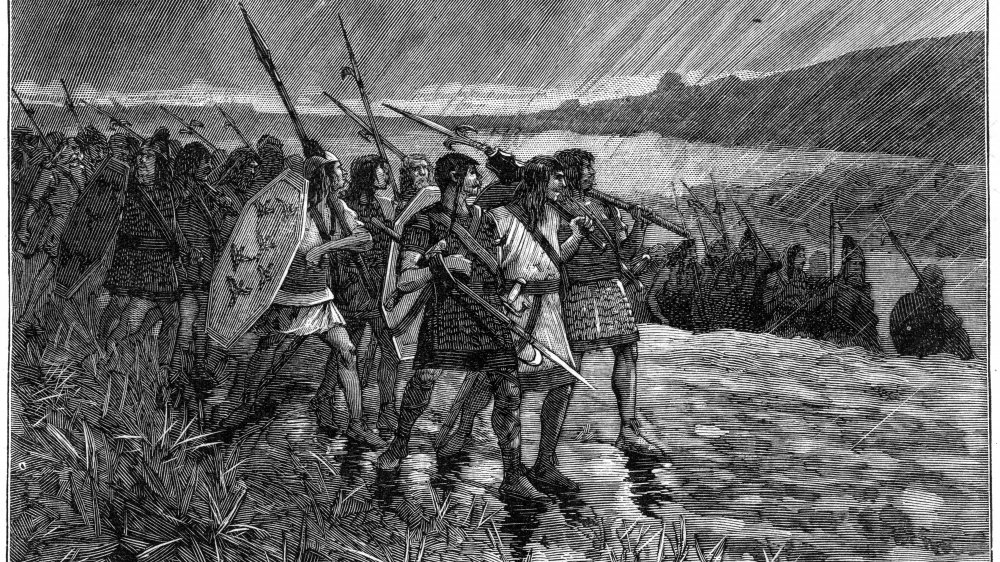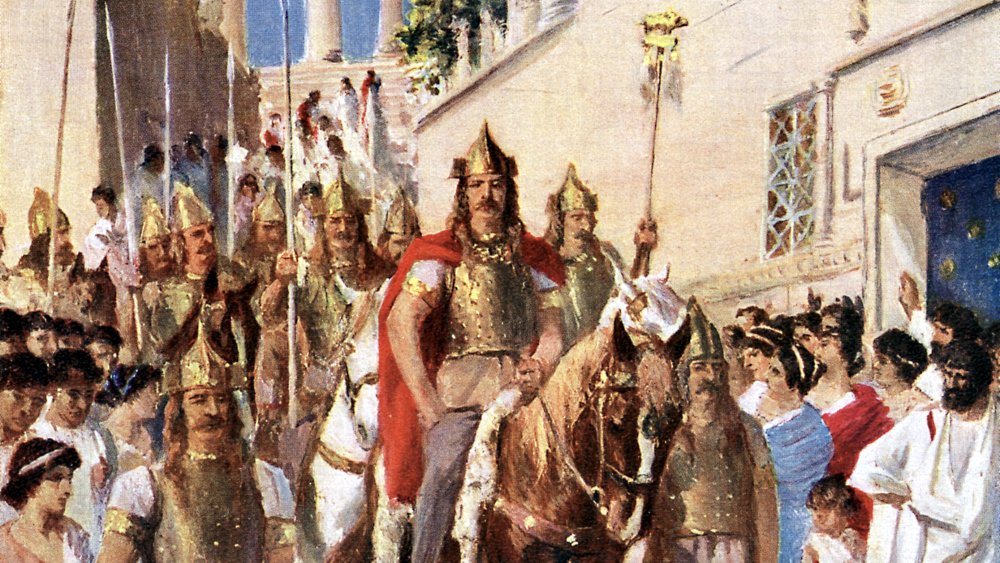It Was Easy For The Goths To Invade Rome. This Is The Reason Why
When the news reached Bethlehem, St. Jerome reportedly lamented "the city which had taken the whole world was itself taken." In 410, Rome fell for the first time in 800 years and for the first time since the establishment of its imperial power. Though today we would date the end of the Western Empire sixty-six years later in 476, its days were now numbered.
But really, the fact that the empire lasted after its capital fell should give you some pause. After all, Rome wasn't conquered and subjugated, and as Peter Heather, Professor of Medieval History at King's College, London, wrote in his book The Fall of the Roman Empire: A New History of Rome and the Barbarians, the sacking of Rome was "one of the most civilised sacks of a city ever witnessed." Yes, as History Today admits, the palaces were looted and resistors killed, but most of the buildings remained unmolested and the slaughter was restrained only to resistors.
In fact, despite the centuries of history writers insisting that the destruction of Rome ended civilization — *cough* *cough* Constantinople — Alaric, the leader of the Goths who perpetrated the sack, did what he did and succeeded at doing so because of the pre-existing weakness and corruption of the Western Empire. Rome easily fell because it accepted and depended upon "barbarian" migrants whom they constantly failed to treat with the respect they withheld for Romans.
Creating an enemy
Alaric came to Rome not as an foreign aggressor, but as Cullen Murphy explains in his recent review for The Atlantic on the book Alaric the Goth: An Outsider's History of the Fall of Rome by Douglas Boin, but as a Latin-speaking Christian who had served in the Roman army, saving the day at the Battle of Frigidus in 394 where he lost 10,000 men. However, Rome didn't recognize the Goth's sacrifice, so he plundered Greece until Emperor Arcadius granted him the title of General of Illyricum, a position soon eliminated in a reshuffle.
So Alaric had good reason to feel aggrieved, but the rest of the Goths did as well. Twenty years previously, the Goths entered Roman territory as refugees before the ferocity of Attila the Hun. The Romans granted them land to cultivate for the Roman people while also acquiring an agreement to call on the Goths for military support. However, according to Quartz, the Roman officers in charge of the Goths were corrupt and began selling them dog meat instead of their agreed upon provisions. This caused the Goths to rebel and kill the Eastern Emperor at the Battle of Adrianople in 372, thus placing the Empire as a whole in a place of weakness.
Rome falls
Alaric turned to Rome in 402. The Goths, trusting themselves more than the Romans, followed suit. Alaric approached Stilchio, Rome's commander in chief, with demands for grain, a similar title for himself, and recognition of his people as Roman citizens. At first, Stilchio refused. They fought and Stilchio forced Alaric to Verona where they fought again, and again Stilchio drove Alaric away. However, Donald Wasson explains in Ancient Encyclopaedia that Alaric sent another messenger to Stilchio, this time suggesting that for annual gold and grain, he would assist Stilchio in invading the Eastern Empire.
Alaric waited, but a response didn't come as Stilchio was fending off a Vandal invasion led by Radagastus. Stilchio succeeded, but in Rome another senator, Olympius, was gaining favor with Emperor Honorius. Olympius wanted war and blamed Stilchio's more diplomatic approach with Alaric for Rome's continued danger. The Emperor agreed and had Stilchio executed. Alaric considered this to be a sign that peace would not come.
Alaric marched upon Rome with demands for two tons of gold, 13 tons of silver, 4,000 silk tunics, 3,000 fleeces, and 3,000 pounds of pepper and a request for an alliance with the Emperor. The Senate agreed to the ransom, melting statues to meet the sum. However, the Romans attacked and were easily defeated by the battle hardened Goths. Realizing that a truce wouldn't be reached, Alaric finally entered Rome, sacking it for the first time in nearly a millennium. And, all things considered, he sacked it gently.


